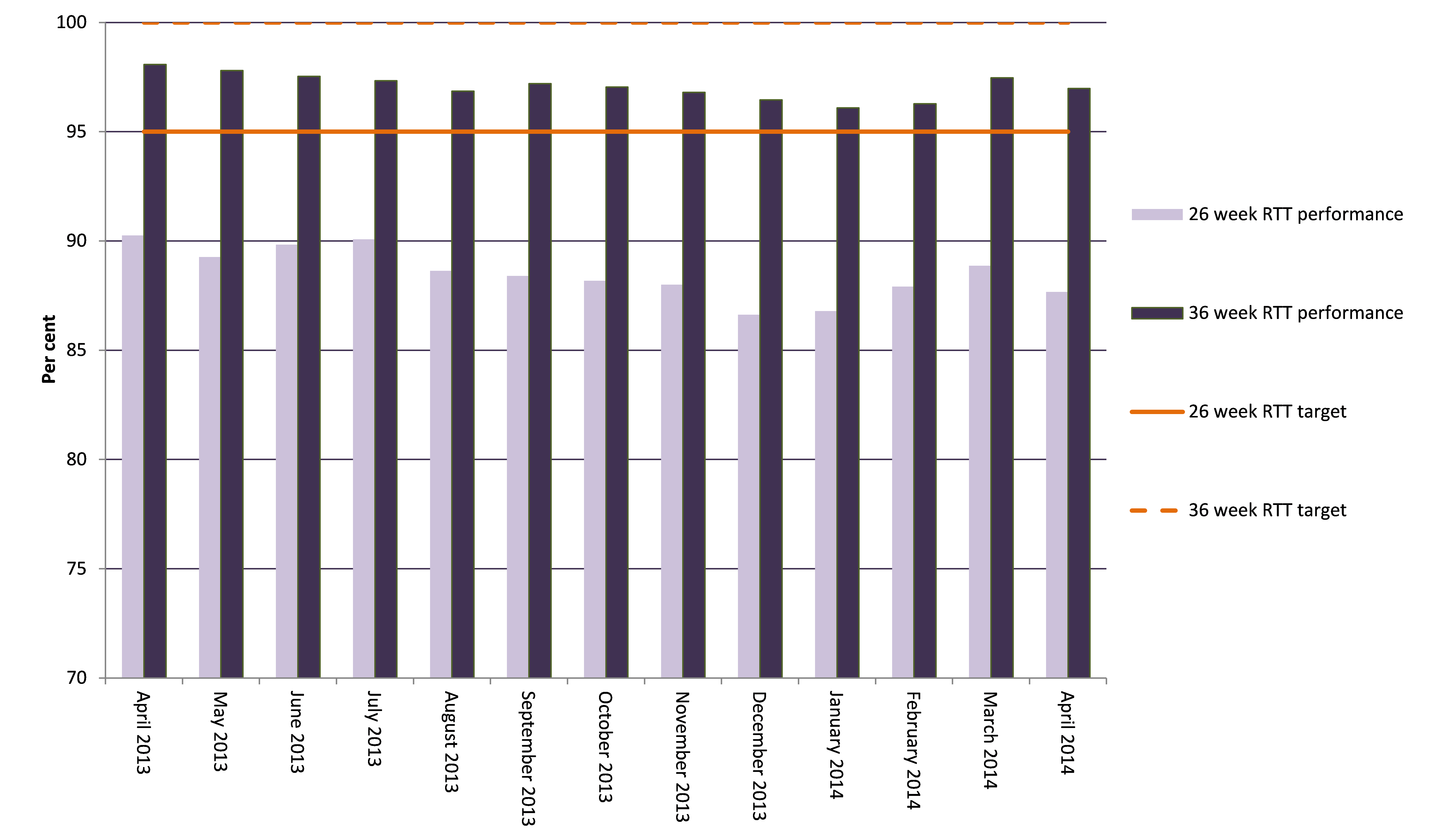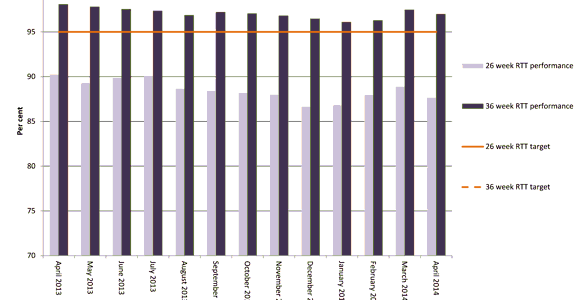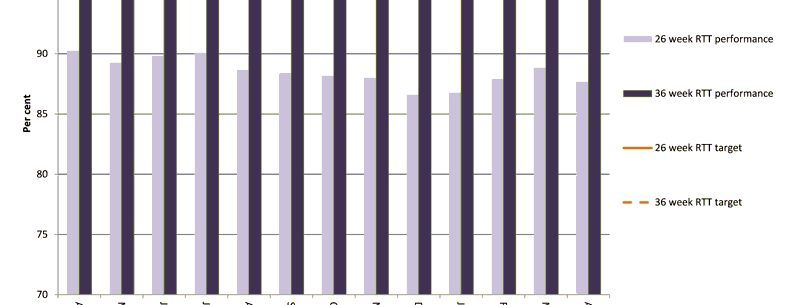Article by Gareth Thomas, National Assembly for Wales Research Service
Ahead of the plenary debate on NHS waiting times for diagnostics and treatment on 18 June 2014, this post provides an overview of performance against three of the main Welsh Government targets in these areas.
Diagnostic Services
The Welsh Government target for diagnostic services is that people will wait a maximum of 8 weeks for access to specified diagnostic tests. Statistics released by the Welsh Government on 12 June show that at the end of April 2014, 23,864 (30.3%) of patients had been waiting more than 8 weeks for diagnostic services. Across the local health boards (LHBs), the percentage of patients waiting more than 8 weeks for diagnostic services ranged from 11.8% for Powys Teaching Health Board to 37% for patients waiting to be treated by Cwm Taf University Health Board. Looking back over time, the number of patients waiting more than 8 weeks to access diagnostic services has doubled over the last 2 years. At the end of April 2012, 9,259 people had been waiting over 8 weeks for diagnostics treatment, compared to 23,864 at the end of April 2014. However, the number of people waiting longer than 8 weeks at the end of April 2014 is over 4,000 lower than the 27,998 waiting at the end of January 2014. In March 2014 the Minister for Health and Social Services, Mark Drakeford AM, announced new funding of £5 million towards cutting waits for diagnostic tests.
Overall referral to treatment times
Most NHS waiting times in Wales are measured against the time from referral to treatment, although there are separate targets for some conditions such as cancer. The current Welsh Government targets in this area are that:
- At least 95% of patients waiting to start treatment must have waited less than 26 weeks from referral to treatment
- 100% of patients not treated within 26 weeks must be treated in 36 weeks.
The 26 week target has not been met since August 2010, while the 36 week target has not been met since December 2009. The latest figures show that 87.7% of patients had been waiting less than 26 weeks from referral to treatment at the end of April 2014, while 97% of patients had been waiting less than 36 weeks. Performance over the last year is shown in figure 1.
Figure 1: Performance against referral to treatment targets from April 2013 to April 2014
 Further details on the performance of LHBs against these targets are available in NHS Referral to Treatment Waiting Times research notes by the Research Service. Looking at NHS waiting times across the UK, The four health systems of the UK: How do they compare? by the Nuffield Trust found that average waiting times for common procedures in Wales have been increasing since 2009-10, and are longer than in England and Scotland. However, the report also stated that the performance gap between the NHS in England and the rest of the UK across key aspects of healthcare has narrowed in recent years, with no country consistently ahead of, or lagging behind, the others.
Further details on the performance of LHBs against these targets are available in NHS Referral to Treatment Waiting Times research notes by the Research Service. Looking at NHS waiting times across the UK, The four health systems of the UK: How do they compare? by the Nuffield Trust found that average waiting times for common procedures in Wales have been increasing since 2009-10, and are longer than in England and Scotland. However, the report also stated that the performance gap between the NHS in England and the rest of the UK across key aspects of healthcare has narrowed in recent years, with no country consistently ahead of, or lagging behind, the others.
Cancer treatment
Turning to treatment for cancer, figures on NHS Expenditure released on 11 June by the Welsh Government show that spending per head on cancer care by NHS Wales was £117.41 in 2012-13, approximately £10 per head more than spending by NHS England, which was £107.21 per head in 2012-13. The two cancer targets in Wales at the moment are:
- At least 98% of patients not referred with urgent suspected cancer but subsequently diagnosed with cancer will start definitive treatment within 31 days of diagnosis, regardless of the referral route.
- At least 95% of patients referred by their GP with urgent suspected cancer and subsequently diagnosed as such by a cancer specialist will start definitive treatment within 62 days of receipt of referral.
In the first quarter of 2014, neither cancer target was met in Wales , with 97.8% of patients treated under the 31 day target receiving treatment within this time and 89.7% of patients treated under the 62 day target receiving treatment within this time. These cancer waiting times are similar to those seen in England , with 98.0% of English patients treated under its 31 day target receiving treatment within this time, and 84.4% of patients treated under the 62 day target receiving treatment within this time. At LHB level, Aneurin Bevan University Health Board met both targets in the first quarter of 2014 while Betsi Cadwaladr University Health Board met the 31 day target. The remaining LHBs did not meet either target. The Welsh Government has also recently developed a pilot project to establish a single cancer pathway developed by clinicians. This is being piloted from May to September 2014, and is running alongside the current targets. Further statistical information on these areas is available on Stats Wales and My Local Health Service.






